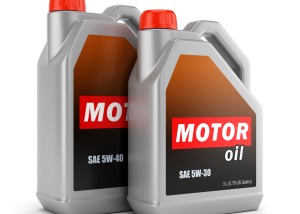Contents
- Best Oil 101: Synthetic or Conventional Motor Oil?
- Synthetic or Conventional Motor Oil?
- What Is Synthetic Motor Oil Made Of?
- What Is Conventional Motor Oil Made Of?
- Which is Better: Synthetic or Conventional Motor Oil?
- Does Synthetic Motor Oil Cost More Than Conventional?
- Does Synthetic Oil Last Longer Than Conventional Oil?
- Conventional vs. Synthetic Oil
- Can I Convert From Conventional Oil to Synthetic?
- Which Is Better: Synthetic or Conventional Oil?
- Synthetic oil vs regular oil mileage
- Types of synthetic oil
- 5w30 conventional oil vs synthetic
- Can you mix synthetic and conventional oil?
- Conclusion
- FAQs
Best Oil 101: Synthetic or Conventional Motor Oil?
Synthetic or Conventional Motor Oil?
What should prefer? Synthetic or conventional motor oil?
When it comes to caring for your vehicle, basic maintenance choices often come down to balancing engine health and cost.
In the question of synthetic or conventional motor oil, there is more to consider than just the price tag alone.
Long-term engine wear, change intervals, and engine performance are all things to keep in mind.
In this article, we will cover the difference between synthetic or conventional motor oil.
So you can go through your next oil change with confidence.

What Is Synthetic Motor Oil Made Of?
Knowing what synthetic oil is made of helps you decide which one is better for you: synthetic or conventional motor oil.
While the actual “recipe” for synthetic motor oils is often kept proprietary…
Synthetic engine lubricants are frequently made from distilled crude oil and other artificially rendered chemical ingredients.
This lubricant was first developed in 1929 and has been used in everything from cars to jet engines by folks across the globe.
What Is Conventional Motor Oil Made Of?
Knowing what conventional oil is made of helps you decide which one is better for you: synthetic or conventional motor oil.
Conventional motor oil is like synthetic but without man-made compounds.
It is also derived from crude oil, which is a mixture of carbon, hydrogen, nitrogen, oxygen, and sulfur.
The petroleum is then fractionated, or heated to the point that various chemical compounds break, in order to refine it.

Which is Better: Synthetic or Conventional Motor Oil?
So, which oil is good for you: synthetic or conventional motor oil?
Since 1929, we’ve come a long way with motor oil.
When selecting a lubricant for your engine, you’ll want to keep some of the following ideas in mind:
- Keeping your engine clean
- Keeping your engine moving at low temperatures
- Protecting your engine at high temperatures
- Keeping turbocharger parts cool
- Protecting your engine from long-term wear and tear
- How often you’ll be able to change the oil
- Your budget
Generally speaking, synthetic oil is better than conventional oil because it is designed to optimize the characteristics above.
It is more chemically stable than conventional oil and much less likely to oxidize or acidify.

Does Synthetic Motor Oil Cost More Than Conventional?
The answer to this question is twofold. Initially, synthetic motor oil does cost more than conventional oil.
But it requires fewer oil changes than conventional oil over time.
This may end up saving you money in the long run, as your engine will be better maintained and will require fewer oil changes.
Does Synthetic Oil Last Longer Than Conventional Oil?
Yes. While most conventional oils recommend a change every 3,000 to 5,000 miles…
Synthetic oil can be changed every 7,500-20,000 miles, depending on the engine and driving conditions.

Conventional vs. Synthetic Oil
One of the primary downsides of conventional, un-engineered motor oil is that it creates build-up over time.
Deposits from conventional oil can gum up your engine in the long term and cause more serious problems for you down the road.
This includes:
- Oil pressure problems
- Hard starting
- Overheating
- Power loss
- Increased fuel consumption

In comparison, as long as you drive your motor 10 miles a day to burn off accumulated condensation…
You will be keeping your engine in optimal running conditions by selecting synthetic.
Synthetic motor oil will:
- Keep turbochargers from overheating.
- Turbocharger parts can reach upwards of 400°F and thus run hotter than non-turbo engines.
- For this reason, it is especially crucial to select synthetic motor oil if you have a turbo.
- Improving engine performance in temperature extremes.
- If you live where temperatures regularly dip below freezing or above 90°F, proper engine care becomes even more critical.
- Protecting from undue engine wear.
- By keeping your engine free from deposits, synthetic oil maximizes the life of your engine over time.

Can I Convert From Conventional Oil to Synthetic?
Now you already have pretty good which oil suits you. Synthetic or conventional motor oil, right?
If you started out on a budget and originally opted for conventional motor oil for previous oil changes…
It’s not too late to make the switch to synthetic!
If you suspect your engine may have accumulated sludge, switching to synthetic is a great way to “scrub” your engine.
Once you make the change, the unwanted deposits will loosen and eventually end up in the oil filter.
This can be changed every other oil change.
Keep in mind that the first synthetic oil change may only be good for 3,000 miles as you will be purging your engine of sludge.
After the first change or so, you’ll be good for more miles, especially if you replace the oil filter.

Which Is Better: Synthetic or Conventional Oil?
Synthetic or conventional motor oil?
While synthetic oil may have a larger up-front cost than conventional oil…
This price difference is negligible over time when you think about engine maintenance and the reduced frequency of oil changes.
Conventional oil becomes a good option if you have an older car or live in a cold climate, as it offers reliable, heavy-duty lubrication.
However, if you’re looking at maintaining the health of your engine long-term…
It’s best to think about maximizing your engine’s cleanliness and efficiency with synthetic motor oil.
Are you looking for the right motor oil for your engine? Click here to browse Amsoil’s optimized oil lubricants!
Synthetic oil vs regular oil mileage
Synthetic oil generally offers better mileage compared to regular oil.
Synthetic oils are specifically formulated to provide improved lubrication and reduce friction in the engine.
This results in reduced energy loss and better fuel efficiency, which can lead to increased mileage.
- Synthetic oils have several advantages over regular oils that contribute to improved mileage:
- Viscosity: Synthetic oils have a more consistent and stable viscosity across a wide range of temperatures. They maintain their optimal viscosity even in extreme heat or cold, allowing the engine to operate more efficiently and reducing fuel consumption.
- Friction reduction: Synthetic oils contain additives that reduce friction between moving parts of the engine. By minimizing friction, the engine runs smoother, resulting in less energy wasted and improved fuel economy.
- Engine cleanliness: Synthetic oils have better detergent and dispersant properties, keeping the engine cleaner by preventing the formation of sludge, deposits, and varnish. A cleaner engine performs more efficiently, which can positively impact mileage.
- Longer oil change intervals: Synthetic oils typically have longer recommended oil change intervals compared to regular oils. This means that the engine can maintain optimal lubrication and efficiency for a longer period, leading to improved mileage over time.
However, it’s important to note that the actual impact on mileage may vary depending on factors such as the specific vehicle, driving conditions, and maintenance practices.
It’s always advisable to consult your vehicle’s manufacturer recommendations and follow the appropriate oil change intervals for your specific vehicle.
Types of synthetic oil
There are several kinds of synthetic oil available on the market. Here are some commonly used types:
- Full Synthetic Oil: This type of synthetic oil is made entirely from chemically synthesized compounds. It offers high levels of performance and protection, providing excellent lubrication and resistance to extreme temperatures. Full synthetic oil is commonly recommended for high-performance and luxury vehicles.
- Synthetic Blend Oil: Synthetic blend oil, also known as semi-synthetic oil, is a mixture of synthetic base oils and mineral base oils. This blend combines some of the benefits of full synthetic oil with the affordability of conventional oil. Synthetic blend oil can provide improved protection and performance compared to conventional oil, making it a popular choice for many drivers.
- High Mileage Synthetic Oil: High mileage synthetic oil is specifically formulated for vehicles with higher mileage or older engines. It contains additives that help rejuvenate seals, reduce oil leaks, and minimize engine wear. This synthetic oil can provide extra protection and help extend the life of higher-mileage engines.
- European Formula Synthetic Oil: European formula synthetic oils are designed to meet the specific requirements of European vehicle manufacturers. These oils often have higher levels of detergents and additives to address the demands of European engine designs and emissions standards.
- Racing Synthetic Oil: Racing synthetic oils are formulated to meet the extreme demands of racing engines. They offer exceptional protection against high temperatures, intense pressure, and prolonged periods of engine stress. Racing synthetic oils are typically not recommended for regular street use.
It’s important to note that the specific kinds of synthetic oil available may vary among different brands and manufacturers.
When choosing synthetic oil for your vehicle, it’s recommended to consult your vehicle’s owner’s manual or follow the manufacturer’s recommendations to ensure compatibility and optimal performance.
5w30 conventional oil vs synthetic
When comparing 5W-30 conventional oil and synthetic oil, there are some key differences to consider:
- Performance and Protection: Synthetic oil generally provides better performance and protection compared to conventional oil. Synthetic oils are designed to offer superior lubrication, reduce friction, and withstand higher temperatures. They provide improved engine cleanliness, enhanced wear protection, and better resistance to oxidation, ensuring longer engine life.
- Viscosity Stability: Both 5W-30 conventional and synthetic oils have the same viscosity rating, indicating their flow characteristics at different temperatures. However, synthetic oil maintains its viscosity stability across a wider temperature range, ensuring consistent lubrication in both cold starts and high-temperature conditions. Conventional oil may thin out more quickly at high temperatures, potentially leading to reduced protection.
- Cold Weather Performance: Synthetic oil performs exceptionally well in cold weather conditions. It flows more easily at low temperatures, providing faster lubrication during cold starts and reducing engine wear. Conventional oil may take longer to circulate in cold weather, leading to increased wear during startup.
- Oil Change Intervals: Synthetic oil typically has longer recommended oil change intervals compared to conventional oil. Synthetic oils’ advanced formulation and superior resistance to breakdown allow them to last longer before needing replacement. This can result in cost savings and convenience for the vehicle owner.
- Price: Synthetic oil is generally more expensive than conventional oil. The higher cost is attributed to the complex manufacturing process and the use of higher-quality base oils and additives. However, the extended oil change intervals and potential engine benefits may offset the initial cost difference for some individuals.
It’s important to note that individual vehicle requirements and manufacturer recommendations should always be followed.
Some vehicles may specifically require the use of synthetic oil, while others may allow for the use of conventional oil.
Consult your vehicle’s owner’s manual or contact the manufacturer to determine the recommended oil type for your specific vehicle.
Can you mix synthetic and conventional oil?
While it is generally not recommended to mix synthetic and conventional oil, in certain situations it can be done as a temporary measure.
However, it’s important to understand the potential consequences and limitations of mixing these oils.
Mixing synthetic and conventional oil can result in a blend that exhibits properties somewhere between the two types.
Synthetic oil’s superior properties may be diluted by conventional oil, reducing the overall performance benefits.
This can impact lubrication, protection, and temperature stability.
If you find yourself in a situation where you need to top off your engine oil and only have access to a different type (synthetic or conventional), it is generally acceptable to add a small amount of the different oil to your existing oil.
However, it is advisable to use the same viscosity grade (e.g., 5W-30) to maintain consistency.
That being said, it’s important to remember that mixing oils should only be considered a temporary solution.
As soon as possible, it is recommended to perform an oil change and use the appropriate type of oil as specified by the vehicle manufacturer.
Consistently mixing synthetic and conventional oils during regular oil changes is not recommended, as it can lead to unpredictable oil performance and potentially harm the engine in the long run.
Always refer to your vehicle’s owner’s manual for guidance on the recommended oil type and consult with a professional mechanic or contact the oil manufacturer for further clarification and advice specific to your vehicle.
Conclusion
Synthetic motor oil is generally preferred over conventional oil due to its superior performance, enhanced engine protection, and extended oil change intervals.
While conventional oil may be suitable for some vehicles, synthetic oil offers the best overall benefits for optimal engine performance and longevity.
FAQs
Q. Should I use conventional or synthetic motor oil? A. The choice between conventional and synthetic motor oil depends on several factors. Synthetic oil generally offers better performance and protection, especially in extreme temperatures and demanding conditions. It is recommended for high-performance vehicles, newer engines, and for those seeking extended oil change intervals. Conventional oil can be suitable for older vehicles or those with less demanding operating conditions. It's best to consult your vehicle's owner's manual or follow the manufacturer's recommendations to determine the most appropriate oil for your specific vehicle. Q. When should you not use synthetic oil? A. While synthetic oil is suitable for most vehicles, there are a few scenarios where it may not be necessary or recommended. For example: Some older vehicles with high mileage and worn seals may experience increased oil consumption when switching to synthetic oil. In such cases, a high-mileage conventional oil might be more appropriate. Certain specialized vehicles, such as those equipped with rotary engines or some classic cars, may require specific oils that are not synthetic. If your vehicle's manufacturer explicitly recommends against using synthetic oil, it's advisable to follow their guidelines. Q. What is the disadvantage of synthetic oil? A. Synthetic oil generally has several advantages over conventional oil, but it does have a few potential disadvantages. These include: Cost: Synthetic oil is typically more expensive than conventional oil, although it often offers longer oil change intervals, potentially offsetting the cost. Compatibility: In some rare cases, synthetic oil may not be compatible with certain older materials used in gaskets or seals. However, modern synthetic oils are designed to be compatible with most vehicles. Oil Leaks: Switching from conventional to synthetic oil in older vehicles with worn seals may sometimes lead to increased oil leaks due to the synthetic oil's superior cleaning properties. However, this is not a common occurrence. Q. Is it OK to switch from conventional to synthetic motor oil? A. Yes, it is generally safe and acceptable to switch from conventional to synthetic motor oil. Many vehicles can benefit from the superior performance and protection provided by synthetic oil. However, there are a few considerations: Compatibility: Ensure that the synthetic oil you choose is compatible with your vehicle's specifications and requirements. Oil Change Interval: Synthetic oil can often last longer than conventional oil, so be sure to adjust your oil change intervals accordingly as per the manufacturer's recommendations. Oil Consumption: If you have an older vehicle with high mileage, it's possible that switching to synthetic oil may increase oil consumption due to the oil's superior cleaning properties. Monitor your oil levels and top up as needed. As always, it's advisable to consult your vehicle's owner's manual or contact the manufacturer for specific guidance on oil selection and any concerns related to switching oil types.